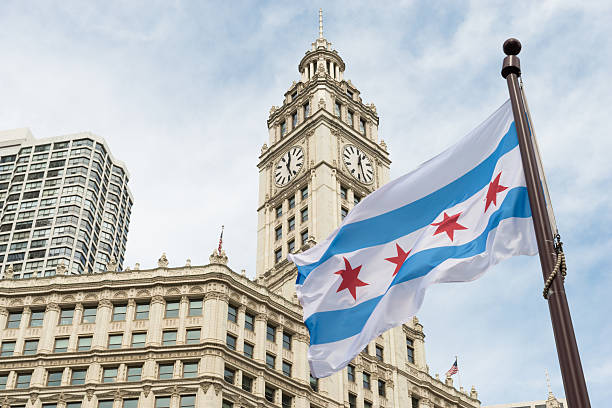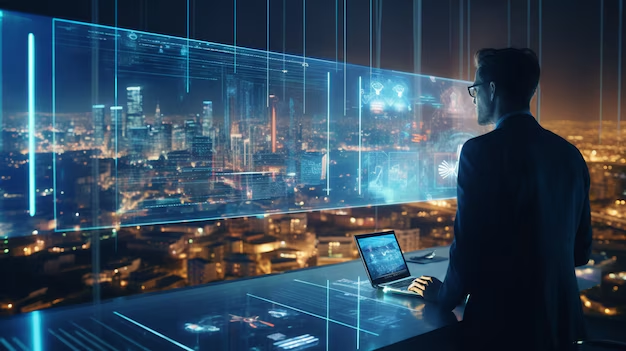History is a tapestry woven with powerful threads of change, conflict, and triumph. Between 1954 and 2023, our world has witnessed events that not only shaped nations but also transformed the very fabric of society. Each decade brought its unique challenges and milestones, leaving a lasting imprint on generations to come.
This journey through time will highlight pivotal moments from landmark court decisions to monumental technological achievements. Let’s explore how these key events have influenced our present-day reality and what they mean for the future as we delve into the significant occurrences between 2023-1954. Buckle up; it’s going to be an enlightening ride!
1954: Brown v. Board of Education decision
The year 1954 marked a pivotal moment in American history with the landmark Supreme Court case, Brown v. Board of Education. This decision challenged the legality of racial segregation in public schools.
Before this ruling, “separate but equal” was the law of the land, allowing systemic discrimination to persist. The plaintiffs argued that segregated schools were inherently unequal and detrimental to African American children.
In a unanimous decision, Chief Justice Earl Warren declared that segregation violated the Equal Protection Clause of the Fourteenth Amendment. This historic verdict not only dismantled educational segregation but also sparked broader civil rights movements across the nation.
The implications reached far beyond classrooms, igniting a struggle for equality that reverberates today. It laid crucial groundwork for future legislation aimed at eradicating racial injustices throughout society.
1963: Assassination of President John F. Kennedy
The assassination of President John F. Kennedy on November 22, 1963, marked a pivotal moment in American history. Many remember the day as one filled with shock and disbelief.
Kennedy was shot while riding in a motorcade through Dallas, Texas. His charisma had captivated the nation, making his sudden death all the more jarring. The event unfolded live on television, forever etching it into the collective memory of millions.
In its aftermath, conspiracy theories flourished. Questions about who was responsible lingered for decades. Lee Harvey Oswald’s arrest added to the intrigue but left many unconvinced.
The nation’s grief transformed into anger and confusion. It sparked discussions around civil rights and political integrity that would shape future generations’ outlooks.
This tragic event reshaped America’s psyche and altered its trajectory during a tumultuous era filled with change and uncertainty.
1969: First Moon Landing
On July 20, 1969, humanity reached for the stars and touched the moon. Astronauts Neil Armstrong and Buzz Aldrin made history as they became the first humans to walk on lunar soil. The words “That’s one small step for man, one giant leap for mankind” echoed across Earth.
This monumental achievement was the culmination of years of intense space race competition between the United States and the Soviet Union. It showcased human ingenuity, determination, and spirit.
The Apollo 11 mission not only fulfilled President John F. Kennedy’s ambitious goal but also ignited a passion for exploration beyond our planet. Millions watched in awe as live television broadcast captured every moment.
The moon landing inspired generations to dream big about science and technology while uniting people around a common goal: pushing boundaries in pursuit of knowledge.
1974: Watergate Scandal and Nixon’s Resignation
The Watergate scandal marked a pivotal moment in American political history. It began with a simple break-in at the Democratic National Committee headquarters but quickly spiraled into a full-blown crisis.
As investigations unfolded, it became clear that President Richard Nixon had attempted to cover up his administration’s involvement. This led to heated debates over ethics and accountability in government, shaking public trust to its core.
The release of the infamous tapes revealed chilling evidence against him. The country watched as Congress moved closer to impeachment proceedings.
In August 1974, facing undeniable pressure from both sides of the aisle, Nixon made an unprecedented decision: he resigned from office. His departure left a significant void and set new standards for presidential conduct.
This scandal reshaped how Americans viewed their leaders, forever altering the landscape of U.S. politics and governance.
1989: Fall of the Berlin Wall
The fall of the Berlin Wall in 1989 was a monumental event that symbolized the end of the Cold War era. For decades, it divided East and West Berlin, representing not just a physical barrier but also ideological differences.
On November 9, people flooded the wall, driven by hope and urgency. The atmosphere was electric; families were reunited after years apart. Joyous celebrations erupted with laughter, tears, and music filling the air.
This moment marked more than just a geographical shift; it signified freedom for millions trapped behind oppressive regimes. The political landscape in Europe began to change overnight as countries sought independence from Soviet control.
As news spread globally, hearts raced with optimism about democracy’s resurgence and unity across borders. The world watched closely as this historic event unfolded—a vivid reminder that change is possible when people come together for a common cause.
2001: September 11th Attacks
The morning of September 11, 2001, changed the course of history. Millions watched in disbelief as planes struck the Twin Towers in New York City.
This act of terrorism claimed thousands of innocent lives and left a nation shattered. The images are seared into our collective memory—smoke billowing against a blue sky, frantic evacuations, and first responders rushing to help.
In its aftermath, security measures tightened across the globe. Airports transformed; new protocols emerged that affected travel for years to come.
The event also sparked significant political changes. It led to wars abroad and an ongoing debate about civil liberties at home.
Communities united in grief but were also divided by fear and suspicion. This tragic day served as a stark reminder of vulnerability in an interconnected world. Its impact is still felt today on many levels—from policy changes to personal stories shared around dinner tables nationwide.
2008: Global Financial Crisis
The Global Financial Crisis of 2008 marked a pivotal moment in economic history. It shook markets worldwide and altered the financial landscape dramatically.
At its core, the crisis was triggered by subprime mortgage lending in the United States. Many banks extended loans to individuals with questionable credit histories, leading to widespread defaults when housing prices plummeted.
As foreclosures surged, confidence evaporated. Major financial institutions faltered or collapsed, prompting government bailouts and unprecedented interventions. The interconnectedness of global finance meant that the fallout rippled through economies across continents.
Unemployment rates skyrocketed as businesses tightened their belts. People lost homes and savings overnight, creating a pervasive sense of insecurity.
Regulatory reforms followed as governments sought to prevent future crises. The event reshaped banking practices and consumer awareness about financial products—an enduring legacy impacting both investors and everyday citizens alike.
Conclusion
Key events from 1954 to 2023 have collectively molded our global landscape. Each moment reflects the resilience of humanity amid trials and transformations.
The aftermath of these pivotal happenings continues to influence contemporary society. They shape our values, beliefs, and collective memories.
Understanding this timeline fosters a deeper appreciation for progress and change. It serves as a reminder that history is not merely about the past but also about guiding us toward a better future.
As we navigate an ever-evolving world, reflecting on these defining moments can inspire action and unity. Embracing lessons learned empowers us to face challenges head-on with renewed vigor.
Every event tells a story—a narrative woven into the fabric of human experience that transcends time.
FAQs
What is the significance of the events between 2023 and 1954?
These pivotal moments have shaped our social, political, and economic landscapes. Each event highlights critical shifts in human rights, governance, exploration, and global relations.
How did the Brown v. Board of Education decision affect American society?
The ruling was a landmark moment in the civil rights movement. It declared racial segregation in public schools unconstitutional and laid the groundwork for further legal challenges against discrimination.
Why is President John F. Kennedy’s assassination considered so impactful?
Kennedy’s assassination shocked a nation already grappling with significant changes. His death led to widespread mourning and changed U.
What made the first moon landing a historical milestone?
The Apollo 11 mission represented not just scientific achievement but also human ingenuity and courage. It ignited interest in space exploration that continues today.
What were the implications of Watergate on U.S. politics?
Watergate exposed deep-seated corruption within the highest levels of government and ushered in an era of increased skepticism toward political leaders.
How did the fall of the Berlin Wall symbolize change worldwide?
It marked not only Germany’s reunification but also signified an end to Cold War divisions, inspiring movements for freedom across Eastern Europe.
In what ways did September 11th impact global security policies?
The attacks reshaped national security protocols globally, leading to heightened surveillance measures and military responses that are still felt today.
What triggered the Global Financial Crisis of 2008?
A combination of risky mortgage lending practices, financial derivatives misuse, and lax regulation brought about one of history’s most severe economic downturns affecting millions worldwide.










